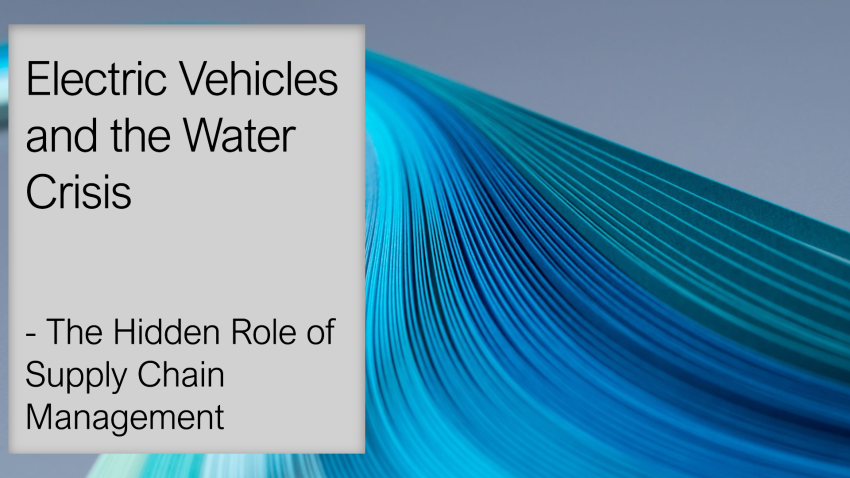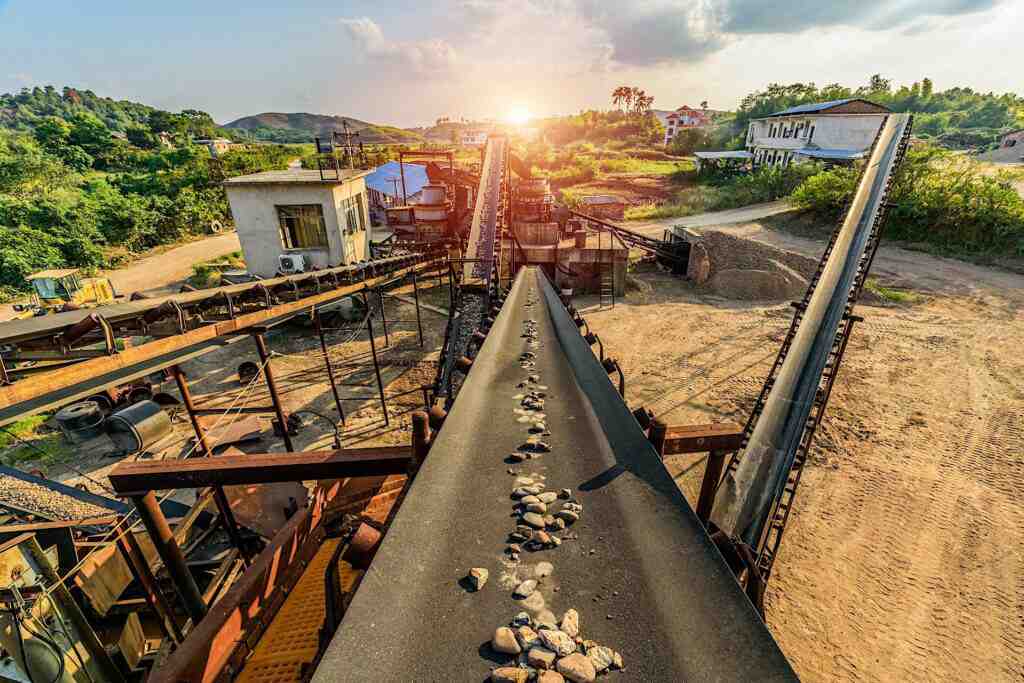
The race to net-zero has some staggering localised consequences that are often overlooked. Water is one of the most impacted environmental and human rights components.
The numbers are impressive. Global Electric Vehicles (EV) sales have skyrocketed in recent years, from 3 million in 2020 to 13.8 million cars in 2023 (IEA Global EV Outlook 2024), expected to grow to over 40 million units sold in 2030.
According to the Copper Alliance, a Battery Electric Vehicle and level 4 autonomous car in 2040 will contain approximately 73kg (161lbs) of copper, compared to only 30kg (66lbs) in a traditional ICE car today. The IEA estimates an increase of recycled copper in time, from 15% in 2023 to 30% in 2030. This still means that close to 10% of all copper mined in 2030 will end up in electric vehicles.
Using our recently released Skarn Water Copper Benchmark update, we have analysed the potential impact of the explosive growth of EV’s on water use and contextualised those figures with reported values of water use from car manufacturers.
The data provided by car manufacturers in their sustainability reports (in some cases) mention water use per vehicle, but this does not include the supply of the raw materials needed to build the car. As an example, in its 2023 Impact Report, Tesla indicates global water use per vehicle produced as 2.48 m3 in 2023, compared to 3.37 m3 as the latest industrial average. BMW mentions a consumption of 2.25 m3 per car in their 2020 BMW Group Report. What is not being mentioned by the car manufacturers is the amount of water consumed in the raw materials used in their cars.
The water used to produce an EV is several factors lower than the water consumed to provide the amount of copper needed to manufacture the Tesla.
Research from Skarn Associates shows that the volume of water consumed to produce the copper required for each EV varies depending on which mine the copper is being sourced from. Where the median of water consumption for the copper per EV is 10 m3, the best 25% water performers in copper mining require just over 6 m3/vehicle, versus the worst 25% water consumption performance is over 12.5 m3 per vehicle
The new Corporate Sustainability Due Diligence Directive (CSDDD) is now law of the land for a substantial number of car manufacturers doing business in the European Union. The Directive has changed the definition of responsible supply chain management: from the application of voluntary and varied standards on corporate responsibility, to mandatory obligations for corporations to prevent and address human rights abuses and environmental harm, including in the company’s supply chain. The water needed to produce the copper for an EV may be anywhere from 2 to 6 times the amount of water required for its manufacturing at the production plant, mostly depending on the mine that supplies the copper.
Water is local, the impacts do typically not occur where the end-users live. This matters, as more than half of current global copper production takes place in areas with high or extremely high-water stress, or from arid locations (Aqueduct definitions). In some of these water-stressed locations copper mines are directly competing with population, agriculture, and other industries for freshwater resources.
The United Nations stated in 2018 that “if monthly variability is taken into account, 3.6 billion people worldwide (nearly half the global population) are already living in potential water-scarce areas at least one month per year”. The World Health Organization in 2020 published a white paper with guidance on minimum domestic water requirements, indicating that every person requires at least 50 litres per day to meet the intermediate requirements such as for drinking, cooking and basic hygiene, and 20 litres per day per person represents an absolute basic minimum requirement. If copper production is in competition with population on water resources, the copper for every new EV would consume the equivalent of 6 to 16 months of minimum water supply for one person.
Considering that several car manufacturers are already producing more than 1 million cars annually, their supply chain activities may have a critical impact on human rights and the environment.
Questions or comments for the Author? Contact Raymond Philippe, General Manager, Skarn Water.
MORE FROM SKARN

About Us
Skarn Associates is the market leader in quantifying and benchmarking asset-level greenhouse gas emissions, energy intensity, and water use across the mining sector.
